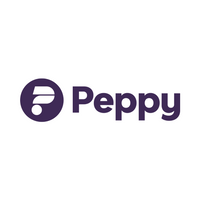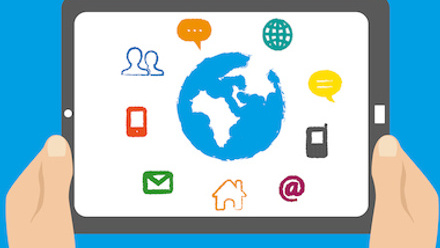Five employee wellbeing trends that have emerged from the pandemic

The pandemic changed our working lives dramatically. This has led to employers rethinking some of the ways they can enhance health at work in the post-Covid age.
Here we highlight the major healthcare trends that have emerged from the pandemic and celebrate the organisations that embraced them to ensure their people will come back stronger than before, whether in the office or working remotely.
1. Digital-first benefits
Health tech, or the provision of healthcare remotely and digitally, existed before Covid-19. But since March 2020 it has exploded into life. Global banks Santander and BNP Paribas were quick to adopt digital solutions in the UK that would enhance their employees’ health.
For example, both industry leaders were early adopters of menopause support with Peppy, a digital healthcare benefit that provides expert support, resources and virtual appointments for employees via a mobile app. Providing this digital safety-net of support has not only had an impressive impact on improving mental wellbeing – nine out of 10 Santander staff also reported feeling more positive about their employer.
The US has seen similar adoption of health tech solutions, with usage jumping from 56% in 2016 to 95% last year. Virtual tools have transformed healthcare delivery and, according to the Top Health Industry Issues Report, from PwC Health Research Institute (2021), there’s no going back . Future healthcare benefits will need to be virtual, easily accessible and, crucially given the precariousness of our times, digital.
2. Job sharing
Like telehealth, job sharing – where two or more part-time employees split the same role – is not a new phenomenon. But amid a pandemic that has disproportionately hit parents, and especially mothers, it has proven a valuable tool for employers to retain and support staff juggling childcare duties. Some argue it could even help close the gender pay gap.
For consumer goods company, Unilever, job sharing and flexible working has been transformative. Last year the Anglo-Dutch FMCG giant announced it had achieved a 50/50 gender balance at management level across every function in all 190 countries it operates in.
“Covid has given us a testing ground for flexibility concepts because the focus has been on output, not presence,” Unilever’s global chief human resources officer Leena Nair said earlier this year.
Another Unilever initiative in the UK allows employees to work for the company for a minimum of six weeks up to six months, with the flexibility and job security to do something else for the rest of the year. “Progresssive companies have to pioneer new models of employment because the traditional models are broken,” added Nair. “What better time than now?”
Nair spoke to us as part of International Women’s Day 2021 – What Will It Take To Close The Gap. Watch the full webinar.
3. Destigmatising the menopause
Menopause and its impact in the workplace is finally on the agenda in male-dominated boardrooms. That’s largely because organisations now realise menopausal women are the fastest growing workforce demographic in the UK, according to UK Labour Market figures from the Office for National Statistics (2018). Globally, by 2025 there will be more than a billion women experiencing menopause – 12% of the entire planet.
Last year Santander and global insurance provider Aviva partnered with Peppy to address this exact issue head on, by providing staff with secure channels for expert advice and peer support. Telecommunications company Vodafone has since followed suit, announcing a global commitment on menopause to provide awareness training for all 100,000 of its employees.
Vodafone sees these steps as part of its wider goal for women to hold 40% of leadership roles by 2030, and to be recognised as the world’s best employer for women by 2025. For employers aspiring towards a multigenerational, gender-diverse workforce, breaking down the stigma around menopause will be critical for success.
4. Protection for marginalised parents
While PwC’s report highlighted the value of virtual healthcare delivery, it also revealed a racial discrepancy in user experience that mirrors that felt in society at large. PwC found 66% of Black and 65% of Latin consumers encountered issues during virtual healthcare visits, compared with 49% for white users.
This imbalance of care has long been felt by Black mothers, who are statistically five times more likely to die in pregnancy and childbirth than white women in the UK, according to Saving Lives, Improving Mothers’ Care, MBRRACE-UK (2019). LGBT parents also face disadvantages, especially in the workplace where more than a third have hidden their sexuality for fear of discrimination, and therefore missed out on vital parental support, found Stonewall’s LGBT in Britain – Work report (2018).
In recognition of these challenges, property firm Gerald Eve has been proactive in working with external diversity and inclusion partners including LGBT charity Stonewall and Women in Property to protect the rights of marginalised employees.
Since 2019 DIY specialists Wickes have similarly overhauled their family leave policies. Last year, they signed up with Peppy and became the first national retailer to provide comprehensive parental support benefits for all 8,300 employees and their partners.
5. Sleep management
The pandemic has wreaked havoc with our sleep patterns, found How the UK is sleeping under lockdown a 2020 study by King’s College London. Again, women with young children and people from ethnic minority backgrounds have been worse affected, showed a further study, Sleepless in Lockdown, by University of Southampton (2020). The new hybrid working environment we’re expected to adopt will likely only add to the nation’s sleep debt.
Meditation and mindfulness tools have been a welcome feature of benefits packages in recent years, but Ikea UK has gone one step further to safeguard the mental wellbeing of its people. In partnership with experts Sleep School, the Swedish furniture company is using Acceptance and Commitment Therapy (which encourages people to embrace their thoughts rather than fight them or feel guilty about them) to help staff overcome insomnia and learn best practices for a good night’s sleep.
With the line between the office and home office irreversibly blurred, now is the time for managers to build greater resilience in their teams and help them come back stronger, ready to face whatever challenges the future holds.
This article is provided by Peppy.
In partnership with Peppy Health
Peppy is a next-generation solution that's transforming digital healthcare.







